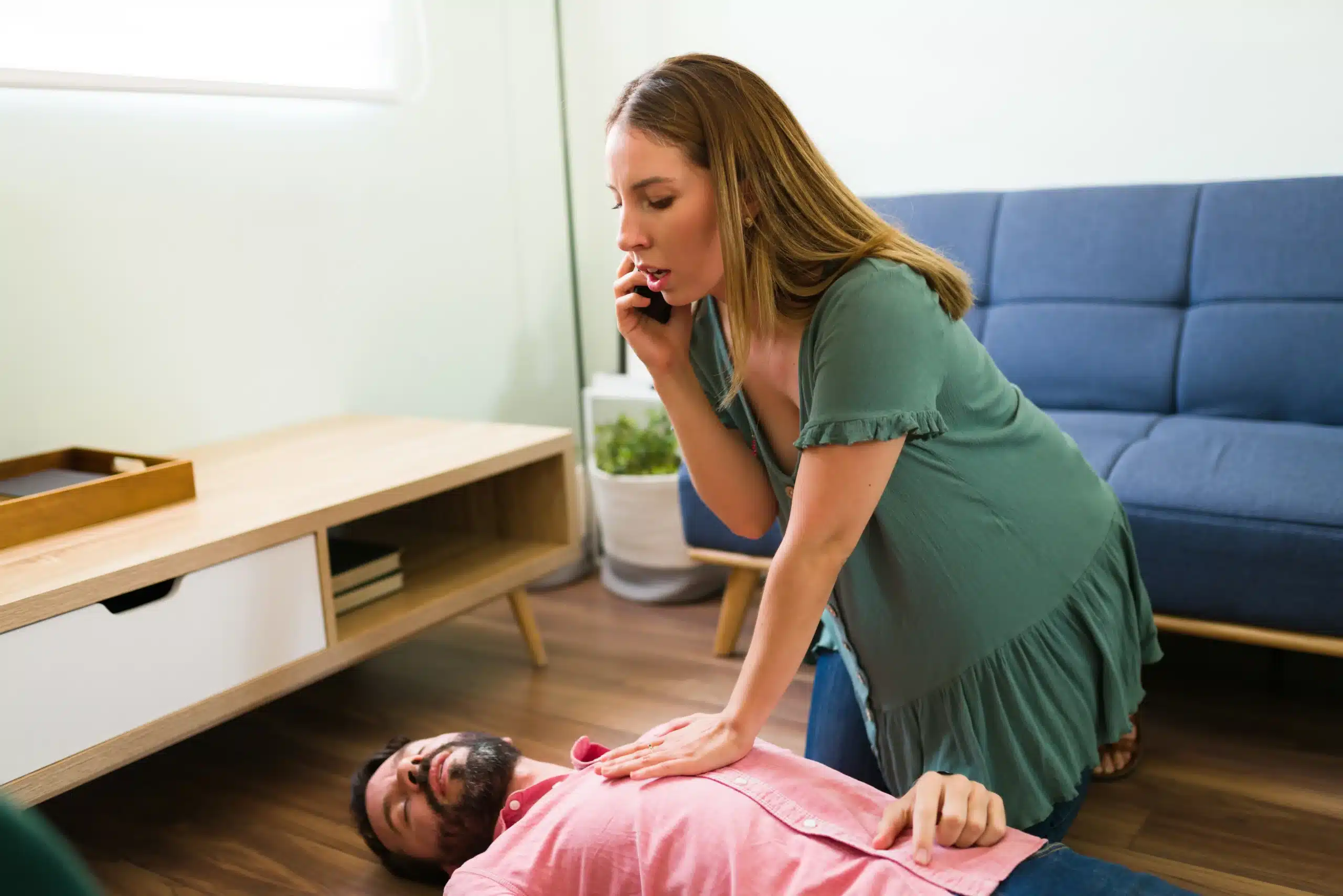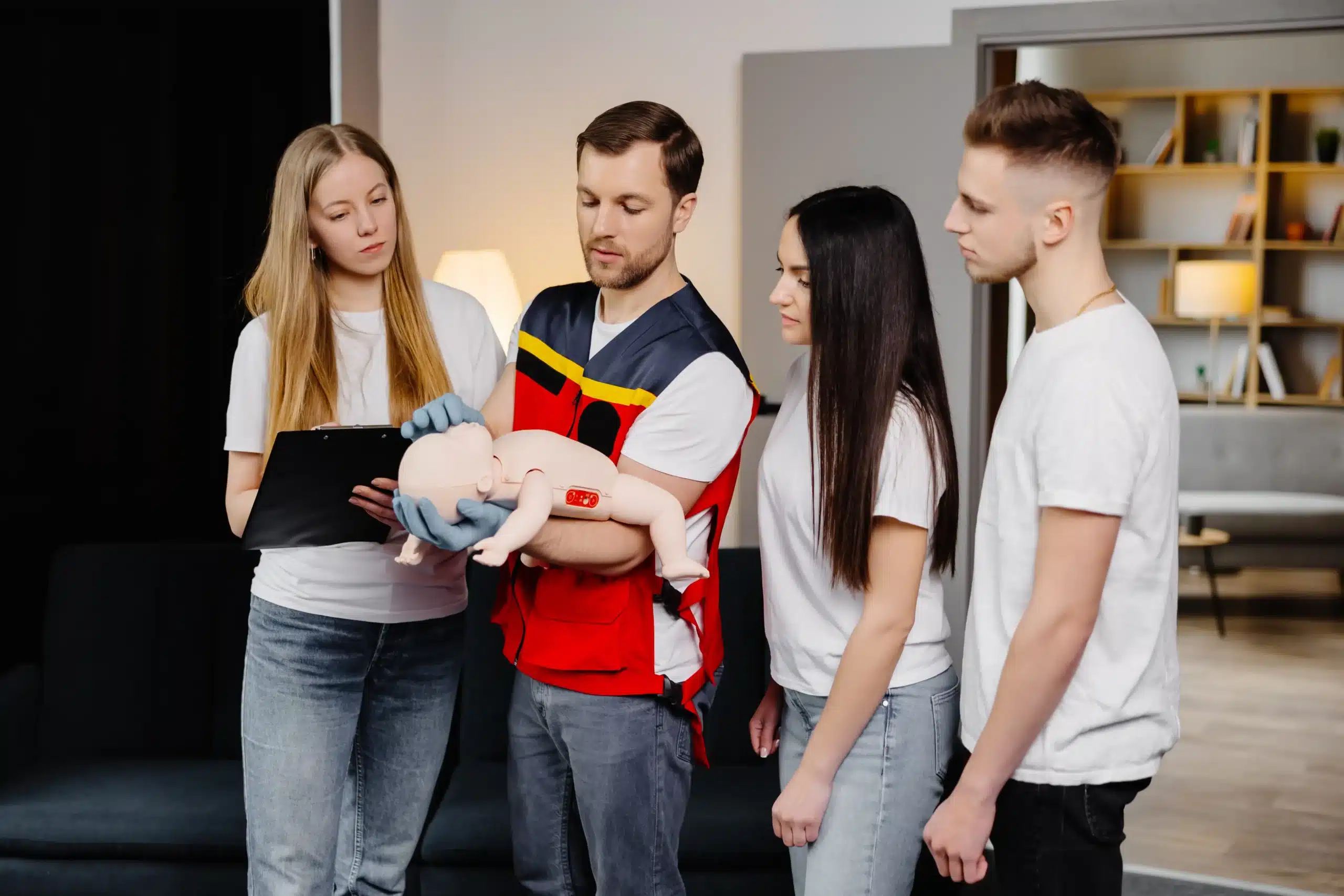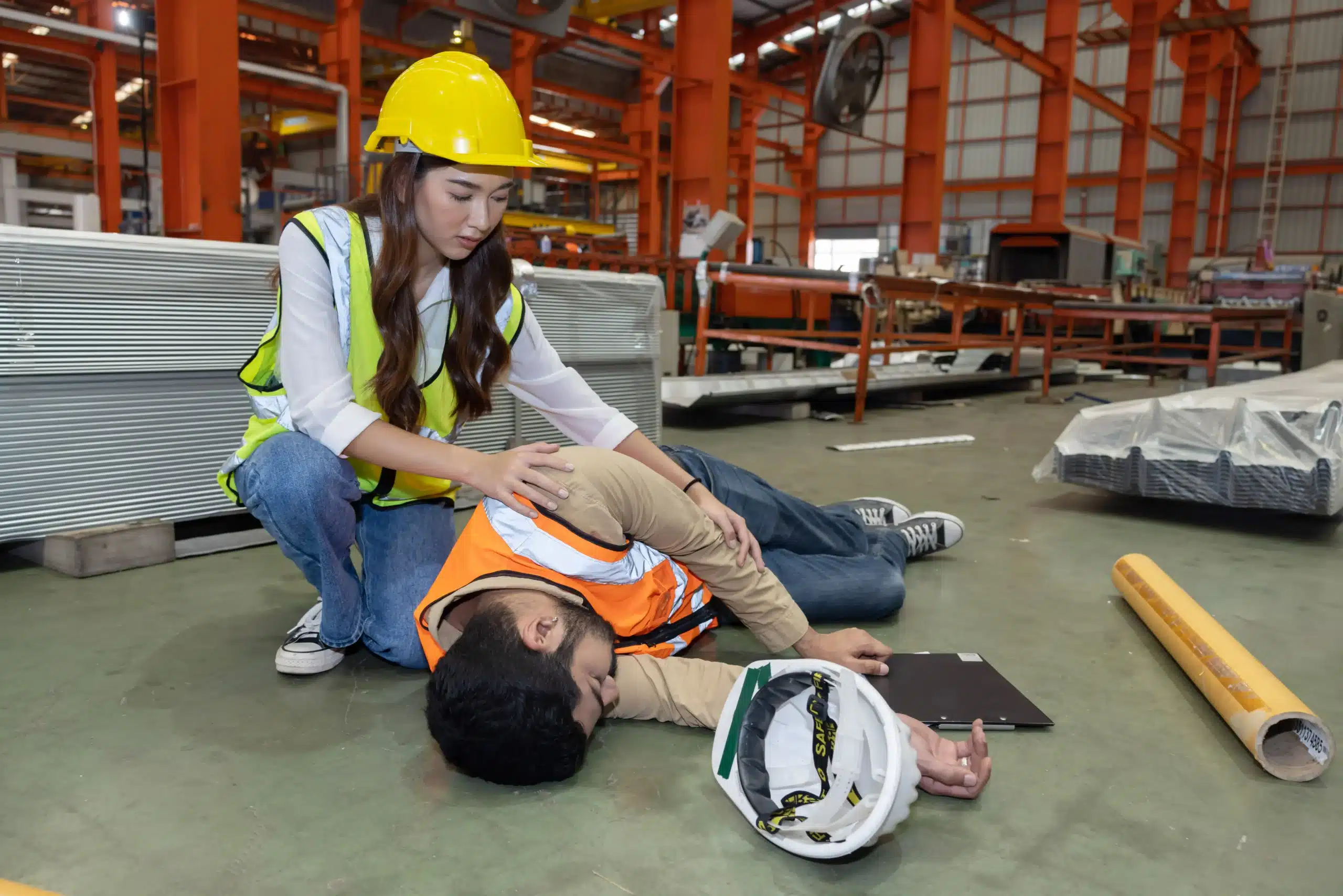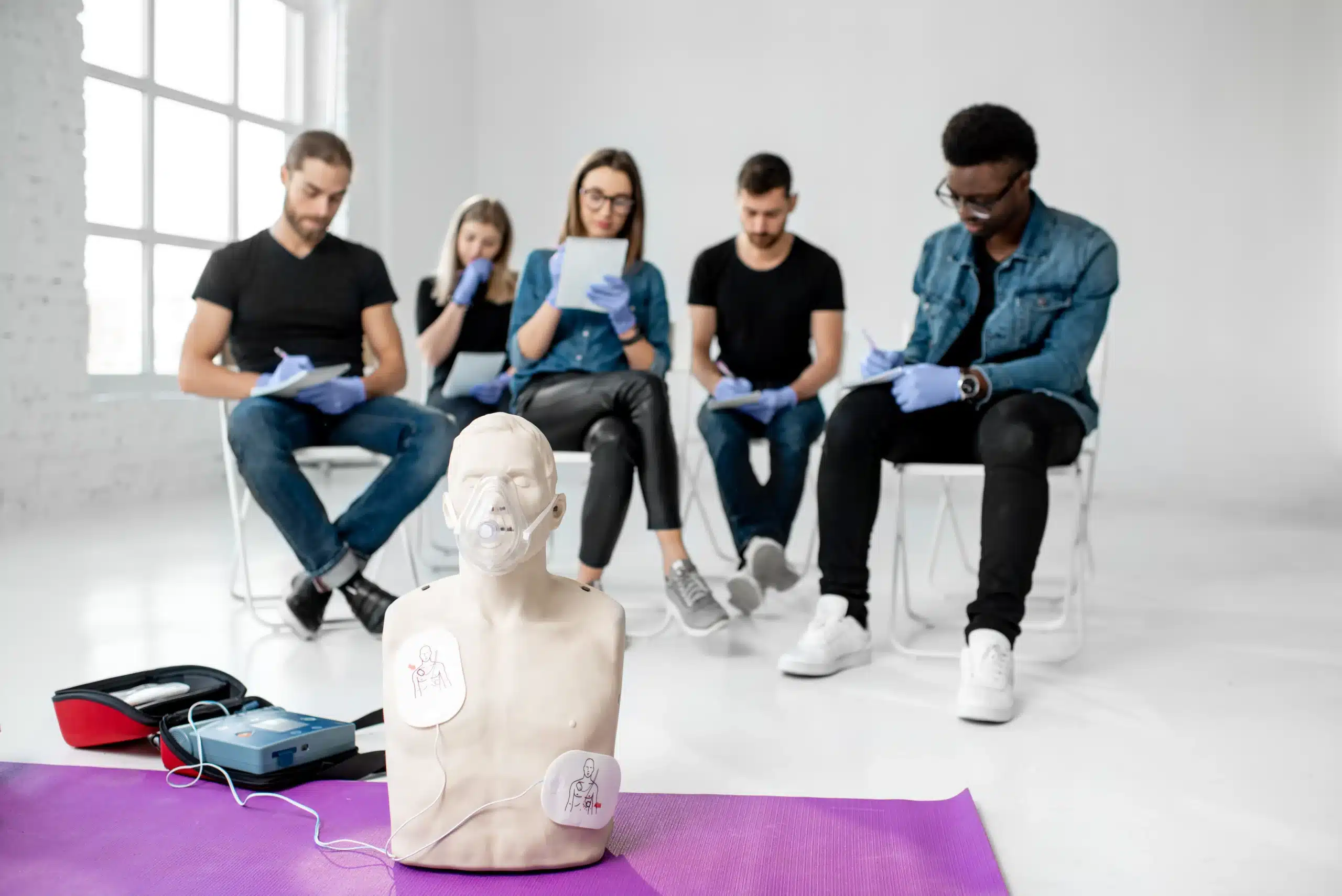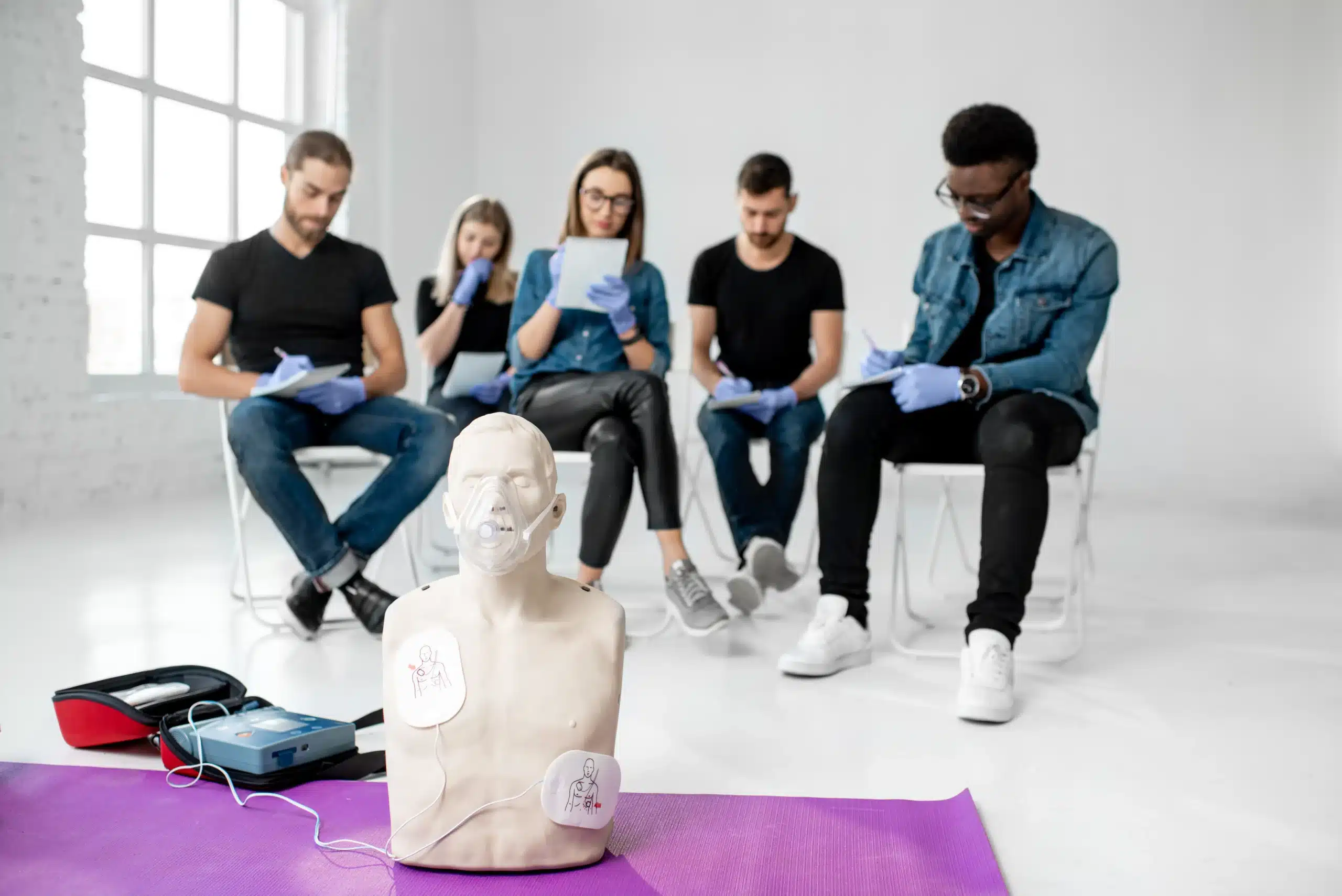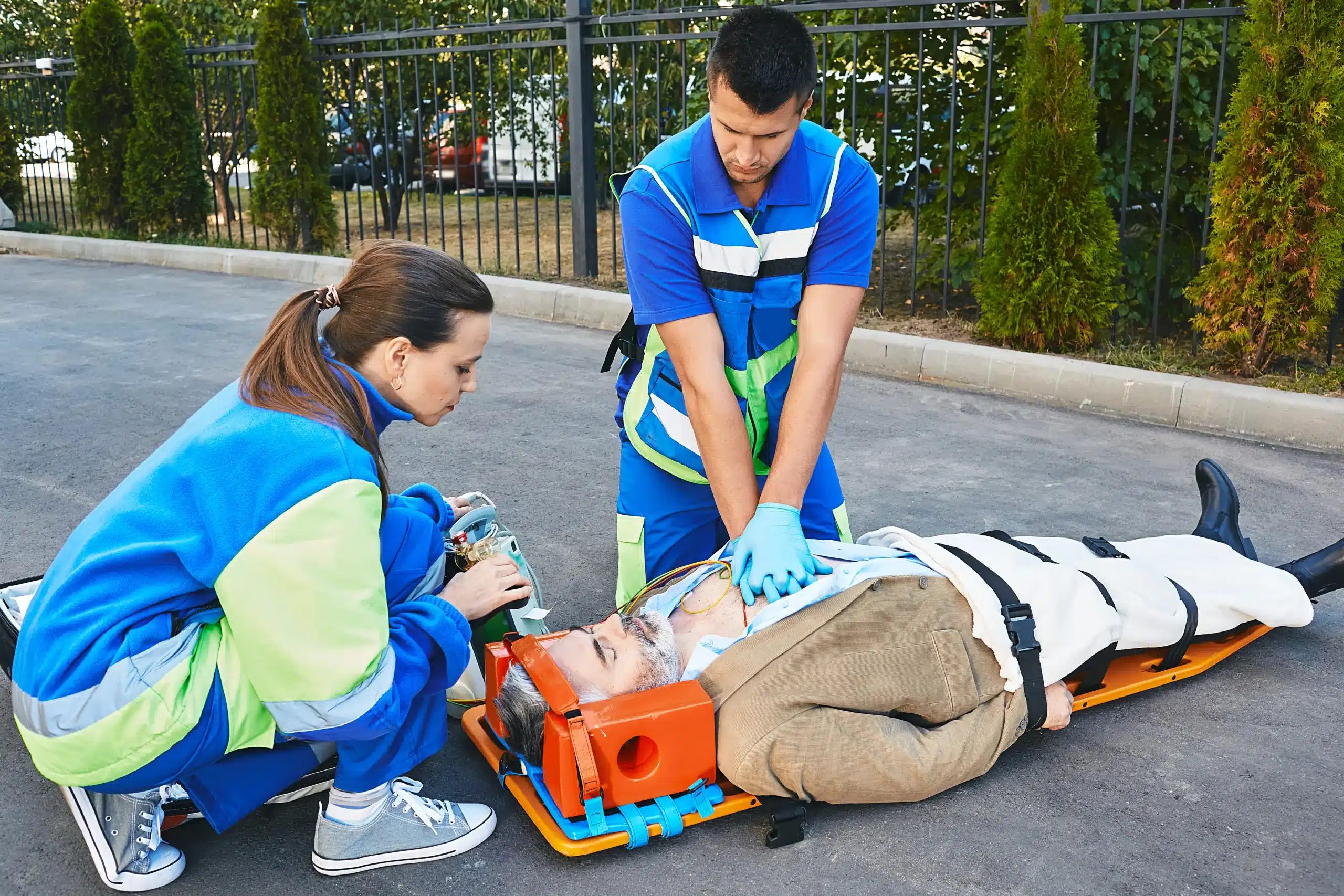As a healthcare provider, your ability to respond effectively during a cardiovascular emergency can significantly impact patient outcomes. ACLS courses in Woodland empower you with the advanced knowledge and skills to confidently manage these critical situations. This article will guide you through the process of obtaining and maintaining your ACLS certification in Woodland. We’ll delve into the key topics covered in the course, the importance of hands-on practice, and the various certification options available. We’ll also discuss the costs associated with ACLS training and offer practical advice on preparing for your course.
Key Takeaways
- ACLS is crucial for healthcare professionals: It provides the skills and confidence to manage life-threatening cardiovascular emergencies, directly impacting patient outcomes. Choose a course format—in-person, online, or hybrid—that suits your needs.
- Preparation enhances your ACLS training: Ensure you meet the prerequisites, utilize pre-course materials, and prepare for the demanding nature of the course. Continued practice and ongoing education are vital for maintaining proficiency.
- Select your ACLS provider carefully: Seek accredited providers with qualified instructors, updated materials, and flexible options. Consider student feedback and inquire about potential cost savings through group discounts.
What are ACLS Courses?
Advanced Cardiovascular Life Support (ACLS) courses prepare healthcare professionals to handle cardiopulmonary emergencies. These courses go beyond basic life support, covering advanced airway management, recognizing and managing cardiac arrest, and understanding the appropriate pharmacology in these critical situations. ACLS training emphasizes both theoretical knowledge and practical skills, often using simulated scenarios. This hands-on approach is crucial for building confidence and competence for real-world emergencies. The ultimate goal of ACLS is to equip providers with the skills to improve patient outcomes during these life-threatening events. It’s essential training for a range of medical professionals, from emergency room physicians and anesthesiologists to critical care nurses and paramedics. ACLS certification not only enhances their skills but also ensures they’re up-to-date with the latest protocols and guidelines. The aim is to instill the ability to act quickly and decisively in cardiac emergencies, ultimately improving patient outcomes.
Why is ACLS Training Important in Woodland?
For healthcare providers in Woodland, Advanced Cardiovascular Life Support (ACLS) training is more than just a certification—it’s a critical skill set. It empowers you with the knowledge and tools to confidently manage life-threatening cardiovascular emergencies. Whether you’re a doctor, nurse, or other healthcare professional, ACLS training prepares you to deliver timely, effective care when it matters most. The National Institutes of Health (NIH) recognizes the significant impact ACLS guide. This is especially important in areas like Woodland, where access to advanced medical facilities might be time-sensitive.
ACLS certification isn’t limited to hospital settings or specific specialties. It’s relevant for a wide range of healthcare providers who might encounter cardiac emergencies in their practice. From clinics to outpatient facilities, having ACLS-trained professionals ensures a higher standard of care throughout the community. This comprehensive training covers a broad spectrum of life-saving interventions, including recognizing and managing cardiac arrest, stroke, and other respiratory emergencies. The importance of ACLS training across various healthcare settings is well documented.
Furthermore, maintaining your ACLS certification demonstrates a commitment to ongoing education and staying up-to-date with the latest advancements in emergency cardiovascular care. Regular re-certification ensures you’re prepared to handle the complexities of modern healthcare and provide the best possible patient care. This dedication to continuous learning not only benefits individual patients but also contributes to a stronger, more resilient healthcare system in Woodland. You can learn more about the importance of ongoing training in this article discussing life-saving skills and ACLS training.
Top ACLS Course Providers in Woodland
Finding the right ACLS course is crucial for a positive and effective learning experience. Here are a few options to consider in and around Woodland:
Davis CPR Classes
Davis CPR Classes offers a range of life-saving courses, including BLS certification for healthcare providers. While their website doesn’t specifically list ACLS courses in Woodland, they do serve the greater Davis, Woodland, and Sacramento areas. It’s worth checking their course schedule or contacting them directly to inquire about upcoming ACLS training. They also offer other valuable courses like RQI for medical professionals seeking efficient recertification. Their commitment to affordability is backed by a low price guarantee.
Options Outside of Woodland
If you’re open to training outside of Woodland, a couple of providers in Texas offer ACLS courses. Roxell Emergency Management Training, located in The Woodlands, TX, provides both in-person and online ACLS training. Similarly, RC Health Services in Spring, TX, offers a variety of American Heart Association ACLS courses, including initial certification and recertification.
Other Local Options
For those specifically seeking ACLS training within Woodland, CA, I recommend contacting local hospitals, community colleges, or other training centers directly. These institutions often offer ACLS certification and can provide more localized options. You can also explore online directories of AHA Training Centers for additional leads.
ACLS Course Formats and Duration
Finding the right ACLS course format is key to successfully completing your training. Thankfully, there are several options available to fit your schedule and learning style. Let’s explore the most common formats: in-person, online, and hybrid learning.
In-Person Training
Traditional in-person ACLS courses offer a hands-on learning experience with direct interaction with instructors and other healthcare professionals. This format provides real-time feedback and allows you to practice skills in a controlled environment. Providers often emphasize the value of experienced instructors with extensive healthcare backgrounds to guide you through the course material. This face-to-face approach can be particularly beneficial for those who thrive in a structured classroom setting.
Online Courses
If your schedule makes attending in-person classes difficult, online ACLS courses offer a flexible alternative. You can complete the coursework at your own pace and from any location with internet access. However, it’s crucial to choose a reputable provider with proper accreditation from organizations like the American Heart Association (AHA). This ensures the quality of the training and the legitimacy of your certification.
Hybrid Learning Opportunities
For those seeking a balance between online flexibility and in-person interaction, hybrid learning is an excellent option. These courses combine online modules with in-person skills sessions. This blended approach allows for reduced classroom time while still providing opportunities for hands-on practice and instructor feedback.
Typical Course Length
The duration of an ACLS course can vary depending on the format and provider. The American Heart Association notes that the full in-person ACLS course typically requires around 10.25 to 11.25 hours of instruction time, not including breaks. Factor in breaks and lunch, and the total time commitment can be closer to 15 hours and 20 minutes. Online and hybrid courses may offer more flexibility in terms of scheduling, allowing you to spread the coursework over a longer period.
What to Expect in an ACLS Course
Getting ready to take an ACLS course? Here’s a preview of what you’ll learn and experience:
Key Topics Covered
ACLS certification is essential for healthcare providers responsible for managing cardiovascular emergencies. The course covers critical topics like advanced airway management and the appropriate use of pharmacology in these emergencies. You’ll also focus on the effective management of cardiac arrest and other cardiovascular emergencies, building upon the foundational knowledge of Basic Life Support (BLS). This comprehensive training, as highlighted by the National Institutes of Health, can significantly improve a healthcare professional’s ability to respond effectively to complex, life-threatening situations.
Hands-On Practice
ACLS courses prioritize hands-on training to solidify your skills. You’ll actively participate in simulations and practice scenarios that closely mimic real-life emergencies. These practical exercises allow you to apply your knowledge in a controlled environment, building confidence and competence. Regular practice, even beyond the course itself, is crucial for maintaining proficiency, as emphasized in the ACLS Provider Manual.
Skills Assessment and Certification
Your ACLS training culminates in a skills assessment to evaluate your knowledge and practical abilities. This typically involves both written and practical components, mirroring the challenges you’ll face in real-world scenarios. Be prepared to think on your feet and respond to changing situations, as ACLS skills evaluations often require quick thinking, adaptability, and strong problem-solving skills. Successful completion earns you your ACLS certification.
ACLS Certification Costs in Woodland
Understanding the costs associated with ACLS certification is an important part of your training journey. This section breaks down the typical expenses for initial certification, recertification, and potential opportunities for savings.
Average Initial Certification Costs
The cost for initial ACLS certification in Woodland hovers around $290. This generally covers the online ACLS course materials, the in-person skills testing session, and your official American Heart Association (AHA) ACLS provider card. You’ll likely spend about three to four hours completing the online portion at your own pace, followed by a 40-minute skills session at a designated testing site like Woodland CPR Classes.
Recertification Costs
Recertification costs are usually comparable to initial certification, also around $290. This covers both the online refresher course and the required skills testing. It’s essential to keep your ACLS certification current, as the AHA recommends renewing every two years to maintain proficiency and stay up-to-date with the latest guidelines. Check with your local provider, such as Woodland CPR Classes, for the most current information on recertification requirements.
Group Discounts and Special Offers
Many training centers in Woodland offer group discounts, which can be a great way to save if you’re certifying multiple people from your workplace or organization. These discounts can significantly lower the per-person cost. Contact training centers like Bay Area CPR directly to learn about group rates and any special promotions they might be running. It’s always a good idea to ask!
Prepare for Your ACLS Course
Getting ready for your ACLS course can significantly impact your performance and the value you extract from it. Here’s a breakdown of how to prepare:
Prerequisites and Requirements
Before signing up for an ACLS course, ensure you meet the prerequisites. ACLS builds upon the fundamentals of Basic Life Support (BLS), so a current BLS certification is usually required. A basic understanding of electrocardiograms (ECGs) and common cardiac rhythms is also beneficial.
Study Materials and Resources
Many organizations offering ACLS courses provide pre-course materials. Take advantage of these resources! They often include manuals, online modules, practice tests, and sometimes even access to online communities. Working through these materials beforehand will give you a head start and allow you to focus on mastering the skills during the course. Check with your chosen provider to see what resources they offer.
Overcoming Common Challenges
ACLS courses can be intense, covering extensive material and requiring quick thinking. One common challenge is managing the psychological pressure of simulated emergency scenarios. Remember, these scenarios are designed to help you learn and practice in a safe environment. Focus on the task at hand, communicate clearly with your team, and don’t hesitate to ask questions. Another challenge is keeping up with the fast-paced nature of the course. Preparing beforehand with the suggested study materials can alleviate this stress. If you find yourself struggling, reach out to your instructor for additional guidance. They are there to support you.
Maintain Your ACLS Certification
Keeping your Advanced Cardiovascular Life Support (ACLS) skills sharp is crucial for providing the best patient care. This section covers how to maintain your certification and stay on top of the latest advancements in emergency cardiovascular care.
Renewal Requirements
Your ACLS Provider Course Completion Card is valid for two years. The American Heart Association (AHA) sets these standards for ACLS certification, ensuring that healthcare providers refresh their knowledge and skills regularly. It’s important to remember that while the initial certification expires, your ACLS certification itself is permanent. Recertification simply demonstrates your continued commitment to providing high-quality care.
Continuing Education Options
You have several options for renewing your ACLS certification. You can retake the full ACLS provider course or choose a shorter refresher course designed for experienced providers. Many providers appreciate the convenience and flexibility of online recertification programs. These programs, often offered through organizations like the American College of Emergency Physicians (ACEP), use case-based training materials to reinforce your understanding of ACLS principles. Online ACLS recertification courses offer a practical way to update your knowledge and maintain your certification. In addition to formal courses, regular practice with simulations and review of updated guidelines will help solidify your skills and ensure you’re prepared for any emergency. Staying current with the latest advancements in ACLS is a vital part of delivering effective care in critical situations.
Choose the Right ACLS Course Provider in Woodland
Finding the right ACLS course provider is crucial for a successful learning experience. Here’s what to consider:
Accreditation and Instructor Qualifications
First, confirm the provider’s accreditation and instructor qualifications. Reputable providers will be accredited by a recognized organization like the American Heart Association (AHA). This ensures the training aligns with national standards. Davis CPR Classes, for example, is a woman-owned AHA Training Center offering BLS courses in Davis, Woodland, and Sacramento. Verify instructors hold the necessary certifications and possess relevant teaching experience.
Course Materials and Resources
High-quality course materials are essential. Look for providers offering updated materials that reflect the latest ACLS guidelines. These might include textbooks, online resources, and practice exams. Consider whether the materials offer diverse learning approaches, such as case studies or interactive simulations. Davis CPR Classes offers a low price guarantee, making quality training more accessible.
Flexibility and Support
A provider’s scheduling flexibility and support resources can significantly impact your learning. Consider whether they offer various course times and formats, including in-person, online, or blended learning. Think about your learning style and schedule. Also, check if the provider offers ongoing support, such as instructor access for questions after the course. For medical professionals seeking flexible certification, Davis CPR Classes offers the innovative RQI program.
Student Reviews and Testimonials
Finally, research student reviews and testimonials. Previous students offer valuable insights into the quality of instruction, materials, and overall experience. Look for providers with consistently positive feedback. Word-of-mouth referrals can also be helpful. Davis CPR Classes serves a wide range of professionals, from healthcare providers to educators, and also offers training in other important areas like EMSA Health, Safety, and Lead Poisoning. This demonstrates their expertise in meeting diverse training needs.
Apply ACLS Skills in Real-World Healthcare Settings
ACLS training isn’t just about checking a box; it’s about equipping you with the skills to confidently manage life-threatening cardiovascular emergencies. The knowledge you gain translates directly to improved patient outcomes in real-world healthcare settings. Think of it as building a solid foundation—ACLS training provides the framework for prioritizing interventions, assigning tasks within a team, and communicating effectively during high-pressure situations. These skills are honed through realistic scenario practice, giving you the experience to react swiftly and decisively when every second counts. Analyzing real-life case studies and applying algorithms to diverse clinical scenarios further strengthens your ability to provide effective care.
Whether you’re aiming for a position in a critical care unit, an emergency department, or a pre-hospital setting, holding an ACLS certification demonstrates your commitment to providing top-tier patient care. It signals to employers that you possess the expertise to handle complex medical emergencies, making you a valuable asset to any healthcare team. Beyond the certification itself, the practical skills you develop become ingrained in your practice through regular practice and simulation exercises. This ongoing learning process solidifies your knowledge and sharpens your clinical decision-making abilities, ultimately empowering you to make a real difference in the lives of your patients during critical moments.
Related Articles
- Advanced Cardiac Life Support in Woodland, CA – Davis CPR Classes
- ACLS Certification in Davis: Your Comprehensive Guide – Davis CPR Classes
- AHA ACLS Classes in Davis, CA – Davis CPR Classes
- BLS Classes in Woodland: Your Complete Guide – Davis CPR Classes
- CPR Courses in Woodland: Your Complete Guide – Davis CPR Classes
Frequently Asked Questions
What exactly does ACLS cover that goes beyond basic CPR?
ACLS training builds upon basic life support skills, delving into advanced airway management techniques, recognizing and managing various heart rhythms, and understanding the appropriate medications used in cardiovascular emergencies. It also emphasizes teamwork and communication in critical situations.
Why is ACLS important if I don’t work in a hospital?
While often associated with hospitals, ACLS certification is valuable for any healthcare professional who might encounter a cardiovascular emergency. Clinics, outpatient facilities, and even private practices can benefit from having ACLS-trained personnel. It ensures a higher standard of care across diverse healthcare settings.
How can I fit ACLS training into my busy schedule?
ACLS courses are offered in various formats to accommodate different schedules. In-person classes provide a structured learning environment, while online and hybrid options offer greater flexibility for those with time constraints. You can choose the format that best suits your needs.
What should I do to prepare for an ACLS course?
Make sure you have a current BLS certification, as that’s typically a prerequisite. Review any pre-course materials provided by your chosen training center. These materials often include manuals, practice tests, and online modules that can give you a head start.
How do I maintain my ACLS certification once I’ve earned it?
ACLS certification is valid for two years. To renew, you can retake the full provider course or opt for a shorter refresher course. Online recertification programs are also available, offering a convenient way to stay current with the latest guidelines.


